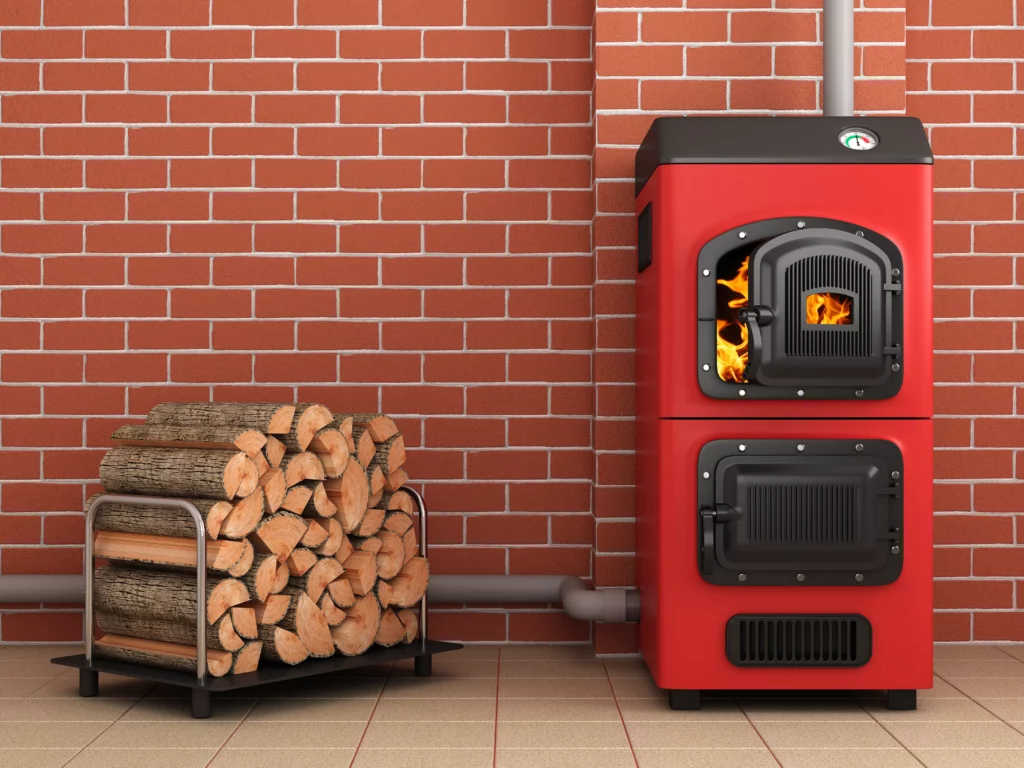Biomass boilers are the perfect choice for those looking for a carbon-neutral heating solution. Here, we look at the benefits and ask whether it’s worth switching from traditional fuels.
What is a biomass boiler?
Biomass boilers work in very much the same way as conventional heating systems. But instead of burning traditional fuels like gas and oil, they produce heat by burning more sustainable fuel sources in the shape of wood pellets and wood chips.
They appeal to environmentalists more than any other form of heating as the carbon dioxide released during combustion was originally absorbed while the tree was growing. This helps to create a highly sustainable cycle that makes the fuel carbon neutral.
Any increased take up of biomass boilers would also help to reduce the vast quantities of wood that finds its way into landfill sites every year, with 8.5 million tonnes sent there every year.


How do biomass boilers work?
Like conventional boilers, biomass boilers combust fuel to create heat that is used to warm houses and produce hot water. One of the biggest differences is the size, with biomass boilers being larger due to the fact that they need extra space to burn the wood.
You will also require extra space if you wish to fit an automatic hop feeder. This is a device that stores and automatically feeds the pellets into the boiler so that refuelling isn’t such a chore.
While wood chips and pellets are common, most biomass boilers can burn logs, which can reduce running costs.
While biomass boilers are designed to work throughout the year, they can be coupled with other systems such as solar thermal, which can produce free hot water in the summer and help counterbalance the cost of the wood.
Benefits of a biomass boiler
The biggest benefit by far is the huge reduction in household carbon production. The carbon dioxide that biomass boilers produce is offset by the fact that it was the same carbon dioxide that was absorbed by the wood when it was growing as part of the tree. Such a highly sustainable system could mean some hugely significant savings of between 10.1 – 10.8 tonnes of CO2 each year possible if a coal-fired system or electric storage heating is replaced by a biomass one. By replacing a modern combi boiler, the reduction is still an impressive 2.6 tonnes of CO2 a year.
However, if cutting your bills is as big a priority as reducing your emissions, it may be worth looking at something like an air source heat pump, as fuel savings aren’t as significant. This is particularly the case when comparing them to gas-fired combi boilers, which can be cheaper to run than biomass systems.
However, those replacing something like an old LPG heating system with a biomass boiler could save up to £980 a year. And if you are replacing electric heating with a biomass boiler, you could save between £170 and £390 per year.
How much does a biomass boiler cost?
Installing an automatically fed pellet boiler will cost you between £11,000 and £17,000, which includes flue and fuel store. Manually fed log burning boilers are usually a little cheaper.
Added costs come in the form of the fuel itself. Wood pellets typically cost between £150 and £200 per tonne. With the average household requiring 11 tonnes per year, that’s an annual cost of £1,925.
Are there any grants for biomass boilers?
There are a number of grants to help fund a biomass boiler, which can help mitigate what can be a substantial cost. The main one being the Energy Company Obligation (ECO) grant.
What are ECO Grants?
The Government’s Energy Company Obligation (ECO) is a government-backed energy efficiency scheme that obligates the UK’s big energy companies to help customers on certain benefits pay for energy-saving home improvements. As well as providing funding for a free boiler, it also covers a long list of other energy-saving measures, including biomass boilers.
